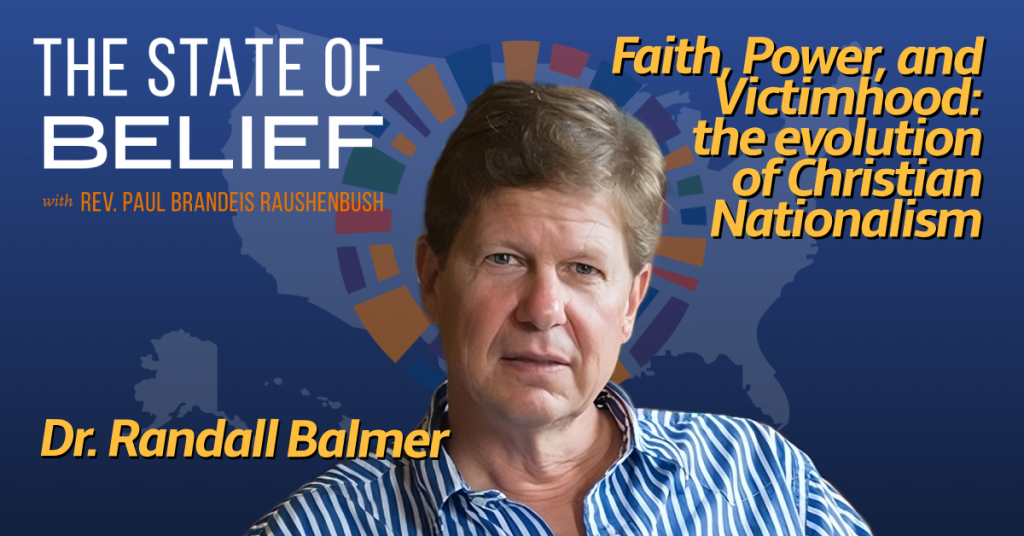
As Christian nationalism and the far right’s influence on American politics grow, historian Randall Balmer offers a critical examination of evangelicalism and the surprising shifts within its ranks. In his book Bad Faith: Race and the Rise of the Religious Right, he reveals how far-right religious lobbying in the 1970s, fueled by efforts to defend racial segregation, evolved into the dangerous political force threatening democracy and religious freedoms today.
For this week’s episode of The State of Belief, Interfaith Alliance’s weekly radio show and podcast, Randall joins host Rev. Paul Brandeis Raushenbush to explore the evolution of evangelicalism, particularly how early evangelicals championed social reform, contrasting with the modern political alignment of those influenced by the far right.
“I think religion certainly contributes to democracy. And some people have misinterpreted what I said, including my Dogged defense of the First Amendment, which I believe is America’s best idea. But people have misinterpreted me to say that voices of faith should not be part of our political discourse. And I couldn’t disagree more strongly. I think people have every right to bring their religious or faith commitments into the arena of public discourse, and I think public discourse will be impoverished without those voices… I have every right to express my religiously informed convictions in the arena of public discourse. But I also have an obligation to listen to others, as well.”
– Dr. Randall Balmer, prize-winning historian and Emmy Award nominee. He holds the John Phillips Chair in Religion at Dartmouth College, the institution’s oldest endowed professorship. Randall’s latest book is Saving Faith: How American Christianity Can Reclaim Its Prophetic Voice.

